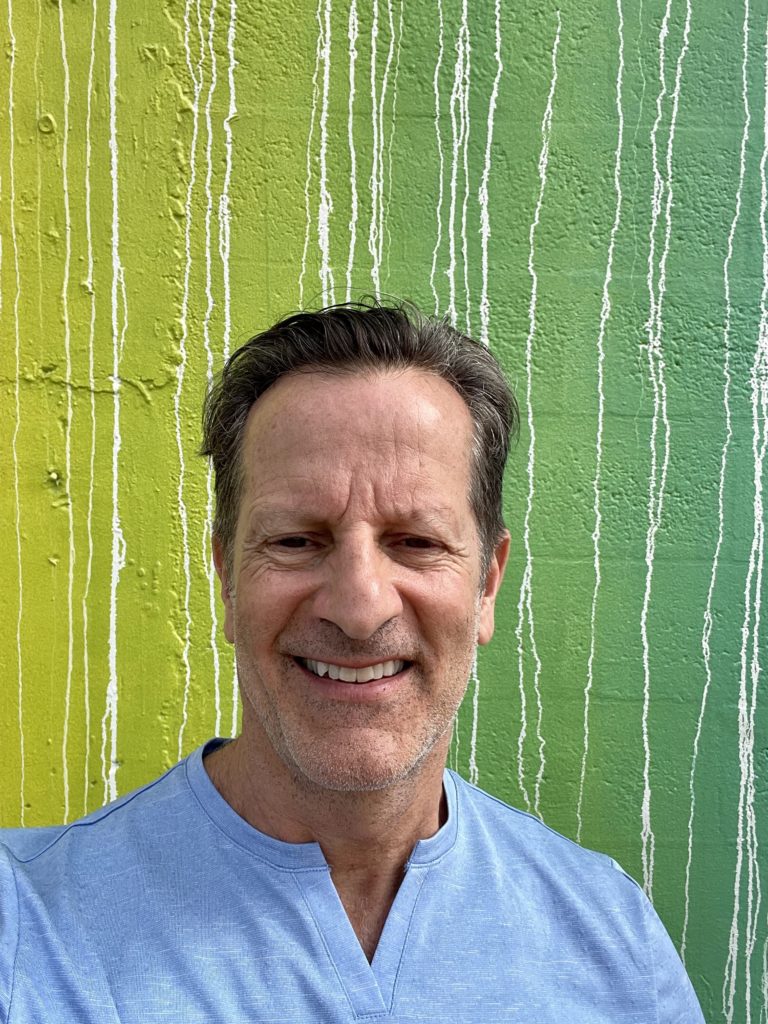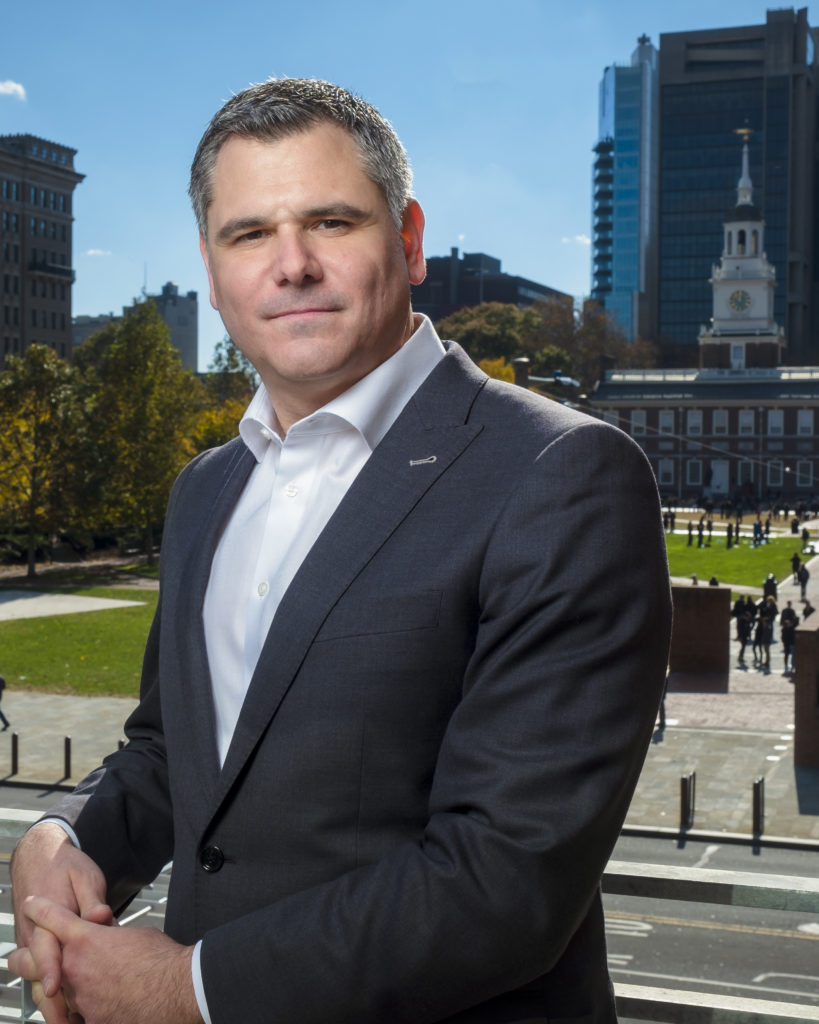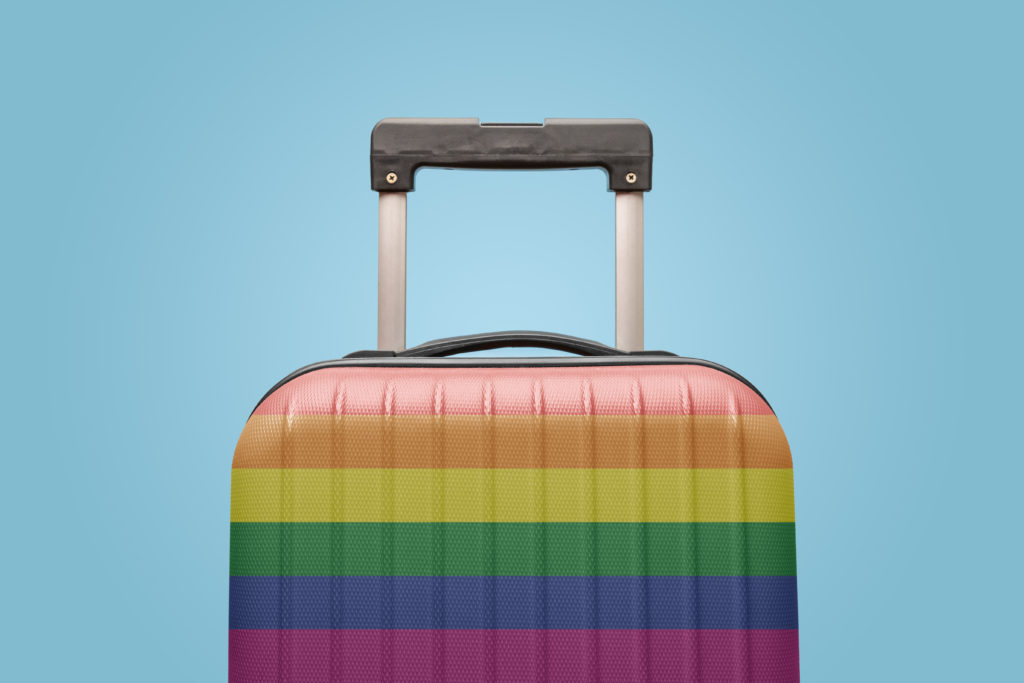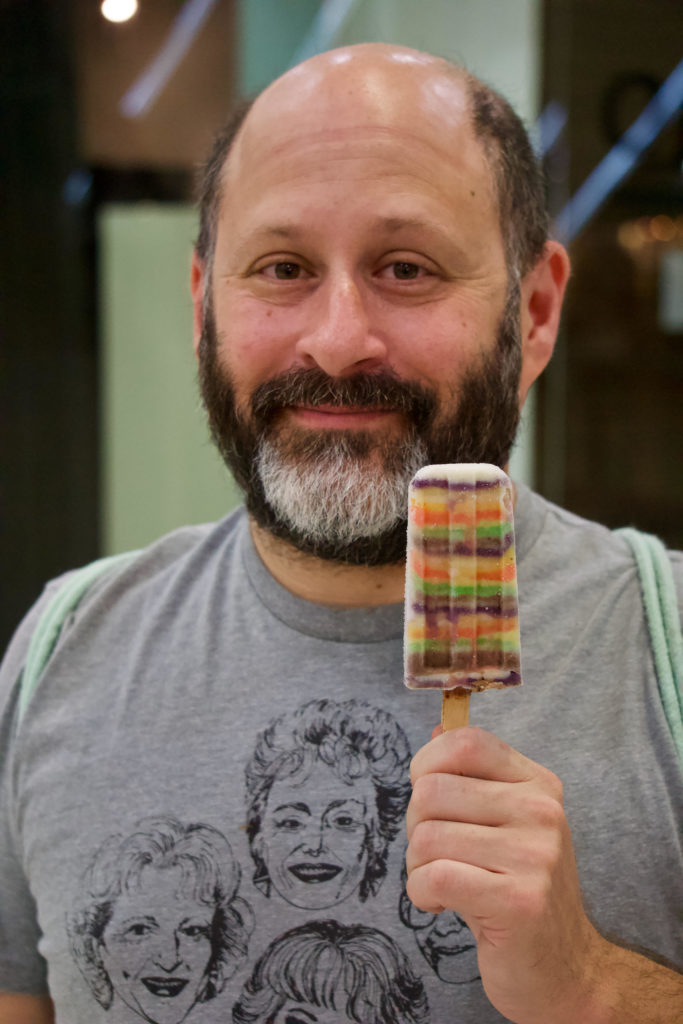Queers leading the way to tourism recovery
By Ed Salvato
Since the tragic events of 9/11 and the abrupt halt to travel that followed, about every 10 years, the tourism industry is knocked back on its heels. The economic meltdown of 2008 and 2009 was even worse on the travel industry than 2001. And the pandemic is a once-a-century calamity exacerbated by the very things that make travel so enriching: large in-person events, meeting new friends at a hotel lounge, slaloming through a crowded bar in a far-flung city.
The travel industry rebooted before, and it will bounce back again soon. And if history is any guide, LGBTQ travelers will be leading the way.
Roger Dow, president and CEO of U.S. Travel Association, the Washington, D.C.-based organization representing all segments of travel in America, says, “Gays lead, and the rest follow. They’re adventurous and like new experiences. They have a penchant for travel far greater than their heterosexual counterparts. They travel more and spend more when they travel. They’re the darlings of the travel industry when it comes to spending and dollars.
“There are a lot of new areas travelers are going to explore,” he continues. “And the gay community will be there first.”
Each year U.S. Travel sponsors National Travel and Tourism Week, celebrating the value travel holds for our economy, businesses and personal well-being. Recognizing the Power of Travel, this year’s NTTW takes place May 2-8 across the U.S. There’s no better time to highlight the unique, unheralded role the LGBTQ community plays in powering travel, especially in times of great crisis.
Recent history has demonstrated that LGBTQ travelers — especially those in dual-income-no-child households — are always among the first to travel after social and economic crises. Following 9/11 and again after the 2008/2009 financial crisis, destinations, hospitality companies and travel brands noticed that LGBTQ travelers were prioritizing tourism over other purchase decisions, helping fill airplanes, hotels and restaurants and animating destinations. So, they began to market to this segment in earnest. Smart travel marketers will note that this is happening again now. We see — anecdotally and with the support of research by Community Marketing, Inc., Harris Interactive and IGLTA — that this segment travels in higher proportions and intends to book and execute travel in greater proportions than their non-LGBTQ counterparts.
The Power of LGBTQ Travel
Absent the onerous obligations of rearing and educating children, queer travelers tend to have more disposable income and time to spend it, helping fill destinations and hotels, especially during the quieter periods when kids are in school. Being among the first to travel safely, this resilient segment grants permission to others that they can return to travel safely. The LGBTQ segment has always been disproportionately present in online platforms, which provide a safer way to meet and interact with others in an otherwise potentially anti-LGBTQ world. They also help achieve travel marketers’ goals by experiencing more, creating social media content and generating buzz.
The segment displays intense loyalty to brands that welcome and include them. There are also surprising halo effects: By signaling welcome to this group, marketers send a sign of inclusiveness to other overlooked and marginalized segments, like Black and LatinX travelers, and the family and friends of queer people are also positively motivated by outreach to LGBTQ people.
Finally, these messages resonate strongly with millennial and Gen Z audiences who plan their travel — as well as plot their careers — to destinations and at hospitality brands whose missions align with their more inclusive values.
The segment has also demonstrated a strong affinity for cruises of all sorts, including all-gay or all-lesbian cruises, LGBTQ groups on mainstream cruises, and simply joining mainstream cruises as a same-sex couple or in small friend groups. While cruise vacations are still on a pandemic-induced pause in the U.S., cruise companies — including Carnival, Celebrity, Cunard, Uniworld and the brand-new Virgin Voyages — have all firmly established LGBTQ travelers as a core segment.
“National Travel and Tourism Week takes on special significance this year as we look ahead to recovery following the most challenging year this industry has experienced,” says Christine Duffy, president of Carnival Cruise Line and national chair of the U.S. Travel Association. “Across the country, we are recognizing travel’s value, and the long-standing support of the LGBTQ community will help accelerate our rebound. I know that for Carnival, we pride ourselves on an inclusive atmosphere where every guest is appreciated, and we look forward to welcoming them back as soon as possible.”
Travel safety experts
One reason queer travelers are uniquely suited to help power the return of travel during this crisis has to do with their decades of experience living under the ever-looming shadow of the HIV/AIDS pandemic, during which they learned the importance of risk mitigation for the good of all. Wearing masks to protect yourself and others resonates with a community that understands the importance of condoms and pre-exposure prophylaxis (PrEP).
According to Randle Roper, co-founder and CEO of VACAYA Full-Ship and Full-Resort LGBT+ Vacations, “[Our] guests showed incredible resilience by traveling safely during the pandemic, and they proved they could adapt to live with health protocols that would keep each other and their loved ones back home safe.”
Travel safety is organically entwined with the LGBTQ community’s DNA. In 70+ countries, many popular with LGBTQ travelers, homosexuality is criminalized. That includes 11 countries in which death is the punishment meted out for those convicted of homosexuality and other “crimes” of sexual and gender non-conformity.
While travelers would be spared the harsh treatments locals may suffer, they nonetheless have a great deal to consider when traveling. Same-sex couples still receive awkward and uncomfortable service when checking into hotels with a single bed on the reservation or even simply existing in places where everyone’s assumed to be heterosexual. When a lesbian boards a plane with her legally-married wife and their legally adopted children, they could land in a destination where their marriage license is void and their legal guardianship of their kids is in question. Trans and non-binary travelers, especially those of color, may encounter challenges including lack of safe bathroom access, awkward encounters at TSA security and even outright hostility and worse in any public setting. In the face of all this, queer people still explore and have a lot to teach the rest of the world about how to travel with intent and joy while maintaining their own safety and that of the community around them.
LGBTQ travelers can also show the world how best to support the tourism and hospitality industries in ways that also strengthen their own communities. “LGBTQ consumers have the power to make change and support LGBTQ-friendly companies and destinations by choosing to spend their travel dollars with those that support our community,” says Jeff Guaracino, co-author of the Handbook of LGBT Tourism and Hospitality. “LGBTQ-owned hotels, bed and breakfasts, tour companies, bars and restaurants, festivals and destinations have been especially hard hit by COVID, and as a community, we can support LGBTQ-owned and friendly businesses and their employees by spending our travel dollars with them first.”
Insights from industry leaders
LGBTQ tour companies and travel agents have a direct connection to queer travelers and report strong interest in and bookings of travel. According to Robert Sharp, co-founder and CEO of Out Adventures, “After [releasing] our entire tour schedule through the end of 2022, we saw our largest month of sales in our 12-year history.”
Kelli Carpenter, co-founder of R Family Vacations, adds, “Our highest sales have come from our river cruise products and international tour business, showing that travelers are ready to explore the world again.”
VACAYA’s Roper has seen extremely robust sales over the past several months — including selling out their Antarctica Cruise. “With a starting price of around $25,000 per room, that was our best sign yet that our community members are ready to break free from their cages and return to travel,” he says.
Robert Geller, founder of FabStayz, agrees: “Pent-up demand is visible, palpable and quantifiable.”
Top 10 tips for marketers interested in the LGBTQ segment
You don’t have to be in the community to market to us, but you should do your homework. Here are a few tips. You can find much more insight in the Handbook of LGBT Tourism and Hospitality (co-authored by this reporter).
- Understand your opportunities and challenges and your brand’s strengths and weaknesses with this segment.
- Prepare for a sustained effort and financial investment.
- Hire an expert; don’t burden an LGBTQ colleague.
- Understand the needs, behaviors and concerns of this segment and avoid saying “Everyone is welcome” until you know that that’s true.
- Apply marketing basics: Market the right product for the right segment at the right time.
- Develop tailored content/social, communications strategies.
- Don’t go it alone: Work with LGBTQ business leaders, ERGs.
- Get buy-in from C-suite on down and avoid “the gay guy’s project” and losing institutional knowledge and continuity.
- Advertise support of employees and the community during Pride in local LGBTQ publications (and support the media you want to cover your business), but focus most of your marketing the other 364 days of the year.
- Educate employees, stakeholders and customer-facing teams on serving LGBTQ guests.
What to expect when you’re expecting queers
LGBTQ visitors and guests want the same thing as everyone else: a safe and fun visit. You have to know the challenges confronting LGBTQ travelers in order to treat them with the same excellent welcome you accord all. Follow this guidance from Billy Kolber, founder of HospitableMe, which helps organizations with strategy and actionable training that drive equity and inclusion. The most successful organizations embrace these practices:
- Focus on community first, profit second. Activities that start with a profit motive often backfire. Ask yourself, “How can we make our product or experience better for diverse customers and support their needs and their community?”
- Educate your people. You can’t provide authentic, personalized service if your team doesn’t understand who LGBTQ+ people are and feel comfortable engaging with them.
- Drive diversity in your own organization. Having diverse voices in the rooms where decisions are made is the only way to effect durable change. Ask why they’re not in those rooms, and what you can do to help get them there.

About Ed Salvato
NYC-based Ed Salvato is a freelance travel writer, instructor at NYU and the University of Texas at Austin’s NYC Center, and an LGBTQ tourism marketing consultant.



